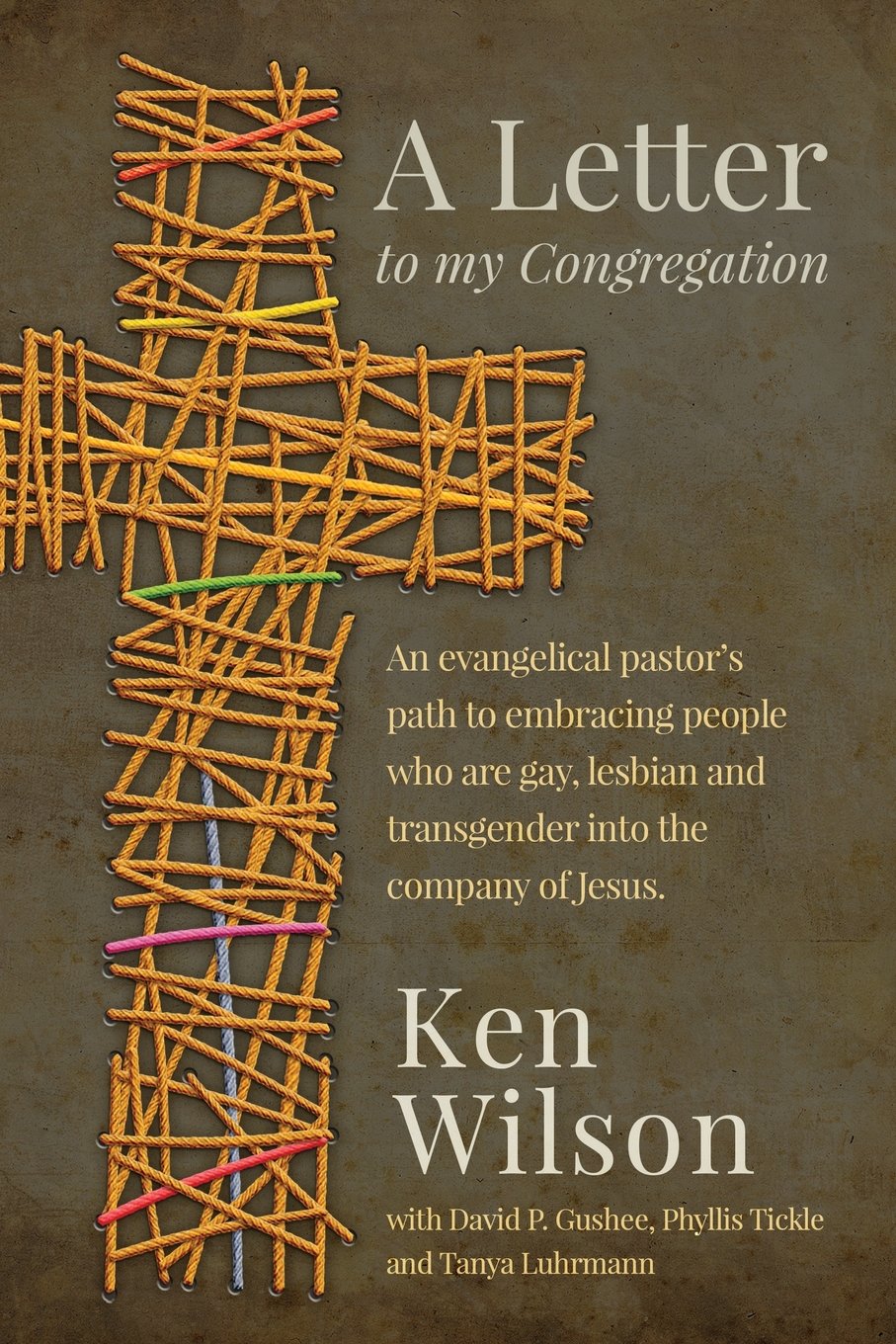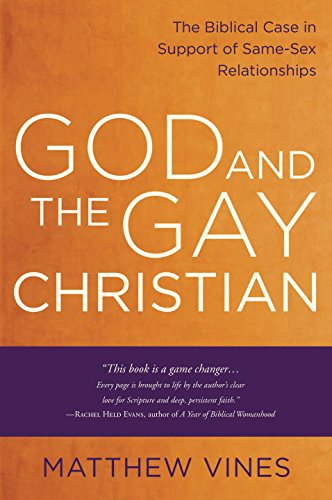 So Tim Keller recently released a sort of combined review entitled The Bible and same sex relationships: A review article about Matthew Vines’ God and the Gay Christian and Ken Wilson’s A Letter to My Congregation in which he dismisses their overall arguments. I am not especially well acquainted with Keller’s Redeemer Presbyterian Church or his books but I know and love quite a few people who respect him deeply and up till now I have been generally impressed with the quotes and blurbs I have seen attributed to him. I have also seen his teachings generally have a good impact on people’s lives and I don’t think that my disagreement with him on this subject ought to undermine what are (so far as I can tell) the very real good he has brought to the world.
So Tim Keller recently released a sort of combined review entitled The Bible and same sex relationships: A review article about Matthew Vines’ God and the Gay Christian and Ken Wilson’s A Letter to My Congregation in which he dismisses their overall arguments. I am not especially well acquainted with Keller’s Redeemer Presbyterian Church or his books but I know and love quite a few people who respect him deeply and up till now I have been generally impressed with the quotes and blurbs I have seen attributed to him. I have also seen his teachings generally have a good impact on people’s lives and I don’t think that my disagreement with him on this subject ought to undermine what are (so far as I can tell) the very real good he has brought to the world.

Additionally, while I do not agree with his conclusions, and have some very real concerns about the way he handled Vines and Wilson, I understand Dr. Keller has a strong record of genuinely trying to love LGBT persons. I like that he opens his review with a nod to Wesley Hill who represents, together with several other awesome people, by far the kindest face of non-affirming American Christianity that I am aware of.
However, once he got down into the body of his review, I found Dr. Keller’s reactions fairly deeply problematic. Let me respond to the first three sections now, in order to keep the length of this post manageable, and then offer some closing thoughts:
Keller’s response here is that If Vine’s and Wilson changed their views on the biblical legitimacy of gay sex after getting to know gay Christians, then they probably did have non-biblical positions to begin with because knowing wise gay Christians is not (in Keller’s estimation) a challenge to a conviction that “the bible never forbids homosexuality1”.
The intellectual point represented here is, I think, accurate: There are people who know gay Christians and respectfully disagree with those of them who believe that God does bless gay sex in certain circumstances. However, this is actually very difficult to analyze since Keller fails to provide his own account of a non-affirming theology which is not challenged by the existence of Godly, wise, gay Christians.
In this section Keller suggests that Vines and Wilson have failed to account for contemporary research into the cultural/historical context for gay sex in the 1st Century. He references a few historians and scholars in support of his contention that Vines and Wilson have done bad historical scholarship and then launches into an analysis of the Aristophanes account in Plato’s Symposium as evidence against their claims.
This is probably the section I found the most problematic. The fact of the matter is that Keller is committing the same error he is accusing Vines and Wilson of. In fact, contemporary scholarship is fairly thoroughly divided on the specific question Keller is addressing here (what actually would have been in the minds of 1st century people when they discussed gay sex - pederasty, slave rape, auto castration, and temple prostitution or committed, monogamous relationships). Keller cites the scholars who agree with him and makes an undefended, and frankly unwarranted, claim that they are the “best” scholars on the subject.
Keller’s treatment of the Aristophanes account in Plato’s Symposium is particularly unfortunate as it is first anachronistic (it was written more the 300 years before Paul was born and is at best representative of Greek and not necessarily Roman culture) and also deeply problematic as a source even for Greek culture in the 4th century BCE. Aristophanes famously despised Socrates (Plato’s hero in the Symposium and in life) and the feeling seems to have been mutual. Since the Symposium was written by Plato, any theories put in the mouth of Aristophanes can, at best, be read as ridiculous to Plato’s audience. So while Aristophanes does present a theory that some people are naturally attracted to their own sex, the best historical analysis of that passage would be that contemporary Greeks didn’t take that idea seriously.
The best part of this section is where Keller suggests that the reader “familiarize themselves with this research”. I recommend the same. But in addition to Loader and Brooten (who are fine scholars) I also recommend Cantarella, Crompton, Cameron, Halperin, Coontz, and Hersch. I would recommend starting with Luis Crompton’s Homosexuality and Civilization. 2
This may be Keller’s weakest section. He spend a great many words trying to counter Vines’ claim, that the church’s view on homosexuality is analogous to its history with slavery and segregation - that the church discovered it had been misinterpreting the bible with respect to slavery and segregation and that it is therefore possible that the church has misinterpreted the bible with respect to homosexuality. Keller argues that while the church never monolithically supported slavery, it has (until recently) monolithically opposed homosexuality. His response to Wilson’s claim, that the church’s reaction to homosexuality is analogous to its reaction to divorce, is a repeated claim that the church has monolithically opposed homosexuality.
The major problem here is the Keller seems to have forgotten about Church history between Jesus’ birth and the enlightenment. He fails to mention that the Church was effectively monolithic in its support for slavery and condemnation of divorce up till the enlightenment. For Keller’s argument to work here one would have to believe that the enlightenment (rather than Pentecost) marks the “true” beginning of the church.
Furthermore, the claim that the church has monolithically opposed homosexuality is anachronistic since our very concept of homosexuality only dates back to the middle of the 19th century. Prior to that homosexual wasn’t a category the church had, either to oppose or to accept. Certainly the vast majority of the church has historically opposed gay sex where they ran into it, but to equate what they were opposing (largely gay sex outside the context of committed monogamy unless John Boswell is to be believed, and Keller doesn’t) with contemporary gay sex in the context of same-sex marriages is, again, frightfully anachronistic.
Closing Thoughts:
One final thing which particularly troubles me about this review is that Keller only barely engages with Wilson’s actual point in A Letter to My Congregation. ALtMC is built around an analysis of Romans 14 and argues that gay sex in the context of a same-sex marriage falls under the category of “disputable matters” and that as such, it should not be used as a litmus test or barrier to full participation in the church. It seems to me that any review worth its salt ought to at least engage the primary argument of its subject matter.
ENDNOTES:
1. Throughout the piece, Keller conflates homosexuality - “being attracted to a person of the same sex” with gay sex - “gay sex”. In this section I suspect he means “gay sex”.
2.For a more thorough reaction to the type of argument Keller is making in this section check out Jim Brownson’s response to Gagnon.




